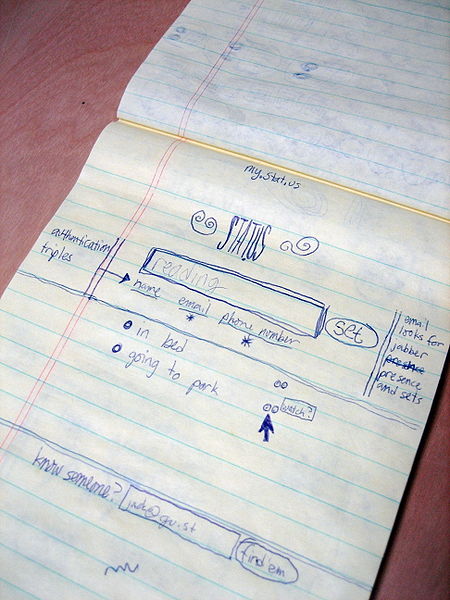There’s a recent phenomenon in the startup world, the quickly built startup, where as few as 1 or 2 engineers can hatch an idea in code and deploy a new web-based company within a few days or weeks. Also known as startup-lite, startup-in-a-box, the 90 day startup, hackathon, etc., the proliferation of these quick startups are the result of many converging milestones in high-techdom – advanced simplicity in web design, “little or no-programming” visual technologies, extremely low cost of entry, an explosion of micro-funding and some shining examples of dream-come-true companies/people like Facebook/Mark Zuckerberg.
Groups like Techstars, Y-Combinator and several others are fostering this trend with “summer camp” like gatherings to help young entrepreneurs get a new company up and running, with a team of world-class mentors, paid lodging and often funding, in less than 3 months. Techstars alone graduates 30-40 companies per year in 4 different cities. What a concept!
The advantages of this trend are obvious – democratization of the process (anybody can do it), low barriers to entry, minimal overhead (a laptop and free dev tools), almost instant revenues, easy leverage of the social graph for push-button marketing. This new bridge between the haves and have-nots, or techs and tech-nots is inspiring many to start their own web/app companies as never before. Any undergrad at Stanford or Harvard or any other college must be constantly thinking about this – “What company am I going to start?”. There are countless people in their early 20s these days that are on their 3rd or 4th startup already. Mark Zuckerberg was on hs 4th (Synapse, Wirehog, Facemash) at 19 when he started Facebook.
So it’s clearly easier to build and easier to discard one that doesn’t take off and move on to the next. And the next. Amid all this excitement, what is the long-term track record of these mini-companies? How many survive after 12 months? 24 months? How many never achieve revenue at all? There is a naturally high failure rate in startups that we know about, ~90%, so is this new generation more or less likely to make it long term? There are no proper records for the many unknown startups that never make out of the bedroom or off the living room couch, but the throw away rate is probably very high. Techstars actually keeps statistics of its graduates on its website – alive after 12 months, 24 months, funding, acquisitions <$2 million and >$2 miilion, etc. But remember, Techstars rejects over 500 companies every year. How are those accounted for?
Does it matter? Maybe not, this is almost more experimentation, practice than pass or fail – Zuckerberg still holds all night hacking sessions at Facebook to stay sharp and connected to the keyboard, to promote discovery. There are hackathons, hacker spaces and other informal Internet company formation vehicles everywhere you look. The world has clearly changed.
But back to Scalability… are these entities scalable over time? In most cases, probably not.
Let’s measure the Idea plus the Implementation:
- The more amazing and unique the idea, the more likely it will grow into a sustainable company. Most quick-Internet company ideas don’t have much longevity.
- The faster (i.e. very few engineering hours) something is put together, the lower its barriers to entry for others to knock it off.
- The personal investment and passion are typically much less in a quickly built site.
There are exceptions to these rules of course (twitter), but generally it takes a lot of work to design, build, implement, adapt and polish something into a must-have application for the masses.
An Exception to these rules
A great example of an exception to this rule is Twitter. The first Twitter (Odeo) interface was by design extremely simple, and drawn on a piece of paper by Jack Dorsey:
And the rest is history. It turned out to be an extra-amazing idea that grew enough as a name brand before it could be knocked off. Although some people still aren’t sure what to do with it, Twitter is clearly now a must-have for 100s of millions, myself included. A fairly simple idea, quick to implement (it took 3 months). But an amazing addition to our world.
